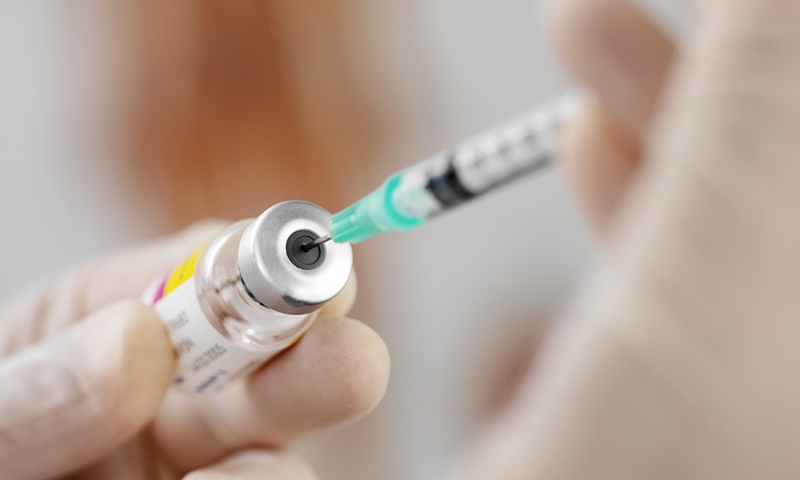Chinese COVID-19 vaccine team praised for releasing complete data; early results promising

Photo: VCG
A Chinese-developed COVID-19 adenovirus vector vaccine candidate became the first in the world to disclose complete phase one clinical trial results and declare dual immune response in the recipient on Friday, representing a significant milestone in its results and boost in confidence for current and prospective volunteers in clinical trials.
The adenovirus type-5 (Ad5) vectored vaccine was well-tolerated and seemed safe in its first-phase human clinical trials for healthy volunteers as it produced virus-specific antibodies and T cells within 14 days of injection, Chinese researchers reported in an article published on Friday in the scientific journal Lancet.
Globally, China still leads the way in its speed and quality of COVID-19 vaccine research and development, and the published results are more complete and rigorous than those of US biotech company Moderna, which announced participants had developed antibodies against the virus on Monday, experts reached by the Global Times confirmed.
“A Chinese research team has unreservedly disclosed data and results surrounding the safety and immune response of all 108 phase one volunteers, and has published results in the leading scientific academic journal. They are more precise, transparent and authoritative than those of the US’ Modena, which published only a third of the data on its own website,” Zhou Lina, a Shanghai-based vaccine expert, told the Global Times on Saturday.
"China's pace of research and development (R&D) is no less rapid than that of the US, given that some of its progress has not yet been made public,” a Beijing-based expert who asked to remain anonymous told the Global Times on Saturday. “Besides, we have four inactivated vaccine candidates holding most mature technology in clinical trials.”
But the current results cannot represent the full efficacy of the vaccine candidate, as there are still many problems and challenges to be addressed in subsequent clinical trials and follow-up observations, experts warn, including determining the threshold of effective antibodies and cellular immunity.
The (Ad5) vectored vaccine developed by military infectious disease expert Chen Wei and Beijing-based Sinovac Research and Development Co was the first to enter phase two clinical trial worldwide.
Virus-specific antibodies as well as neutralizing antibodies increased at day 14, peaking 28 days post-vaccination, and the most adverse events were mild to moderate, said leading researcher Chen Wei and colleagues writing in the Lancet.
108 participants from Wuhan were divided into three groups of 36 for each to receive the low, middle, and high doses, and they completed scheduled visits within 28 days following injections.
Volunteers reached by the Global Times felt excited to hear the good news, and said that they felt more confident in the vaccine research despite mild adverse reactions in early days.
“Such inspiring news will surely encourage more people to participate in the later phases of vaccine trials and make contributions to China's vaccine R&D,” Zhu Aobing, a Hubei-based phase one clinical trial volunteer, told the Global Times on Saturday.
Despite the study’s positive results, however, experts warned that a working vaccine remains a long way off, and there is a lot of room for improvement.
The study found that people with preexisting immunity to the adenovirus 5 had a dampened immune response to the vaccine.
“This means that the immune response to the vaccine is weaker in people who often catch colds and in the elderly,” said Tao. “However, it remains to be seen whether this weaker immune response substantially affects the protective effect of the vaccine.”
Moreover, around 87 percent of the 108 participants reported at least one adverse reaction within the first seven days following vaccination, according to researchers. “With prophylactic vaccines for healthy people, the adverse reaction rate should be lowered as the vaccine is improved,” the anonymous expert said.
“But because of the lack of a placebo control group in phase one clinical trials, it was difficult to tell whether these adverse events were caused by the vaccine,” Tao argued.
By now, there are more than 100 candidate vaccines in development worldwide, and among them at least eight have begun or will soon start clinical trials.

